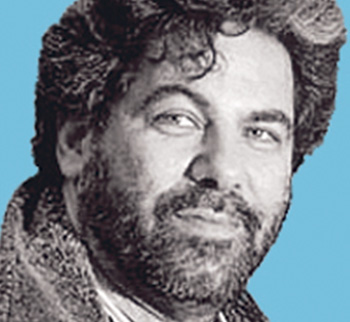In the July 23 edition of The CJN, I wrote a column entitled, “Holocaust education: we’ve lost our way.” My thesis was that the resources used to build Holocaust memorials and sponsor programs whose objective is to simply remember the Holocaust would be better spent on encouraging more Jewish community members to be activist and advocates. This would thereby strengthen the Jewish People, Israel and the world in which we live. That to me is the fundamental lesson today of the Holocaust.
I still believe that to be true. However, my article failed to discuss some Holocaust education programs that have moved toward action and critical thinking – in other words, more than just remembering. By leaving out these programs, I effectively undermined some significant work that’s pursuing activism and advocacy.
First, it’s imperative that I apologize to any survivor offended by my words, particularly those who have spent hours speaking in schools about the Holocaust, educating students on the importance of eternal vigilance. They deserve to be honoured for their courage to allow their memories to breathe and the strength to articulate them. I in no way meant that their work is done for the sake of entertainment. The reference to “entertainment” in my initial article was directed at community members who never miss a Holocaust lecture or film, yet rarely translate what they’ve learned into standing up for Israel, the Jewish People and people who are suffering.
Further, an organization that has made a palpable difference through Holocaust education is Facing History and Ourselves. Facing History is an international educational and professional development organization whose mission it is to teach students of varying backgrounds about prejudice, racism and anti-Semitism, and to help develop critical thinking and a deep concern for humanity. Well done.
This incredible organization began in the United States in one classroom, teaching the ideas and events that led to the Holocaust. It made its way to Toronto in 2008 building upon an informal presence through the good work of Myra Novogrodsky, Margaret Wells and Sharon Weintraub.
According to Facing History’s director, Leora Schaefer, “our growth is impressive and exciting. In 2008, we partnered with Toronto District School Board in the formation of the course Genocide and Crimes Against Humanity, a Grade 11 elective. It has spread across the province.”
Students in Facing History learn to be aware of misinformation and develop their empathy and compassion for others emphasizing the importance of activism and the perils of indifference. Nice work.
Another extraordinary program – founded by a special friend, Eli Rubenstein, a giant of a Jewish leader – is the “March of Remembrance and Hope.” The March’s mission is to teach students of different religious and ethnic backgrounds about the hazards of intolerance through the study of the Holocaust and to encourage stronger relations between them.
The March, also co-ordinated by United Israel Appeal and funded by the Azrieli Foundation, includes a two-day trip to Germany, followed by five days in Poland at Auschwitz, Treblinka and Majdanek. Some of the participants include Buddhists, Christians, Hindus, Jews and Muslims. Brilliantly, the March has also hosted survivors of the Rwandan genocide, First Nations students and African-Americans.
Shout Canada and Stand Canada, local organizations whose mandate is to teach tolerance and combat genocide, were started by students who participated in marches. Clearly, the March of Remembrance and Hope has produced activists. Yasher koach.
While I hold dearly to the belief Holocaust education must do more to encourage Jews to actively fight injustices today on a broader spectrum, it is clear there are organizations and programs doing exactly that, and bringing caring and love to the world.
avrum.rosensweig@veahavta
